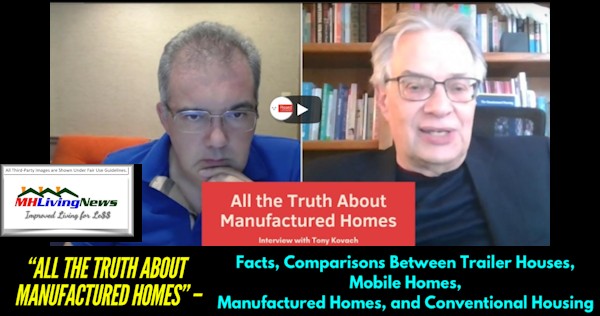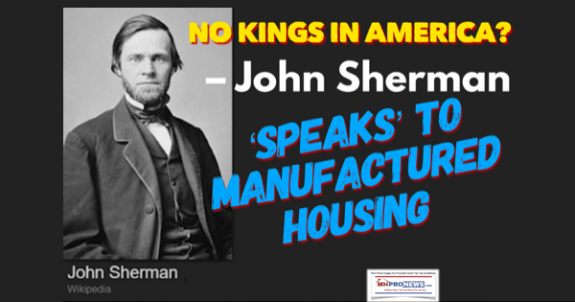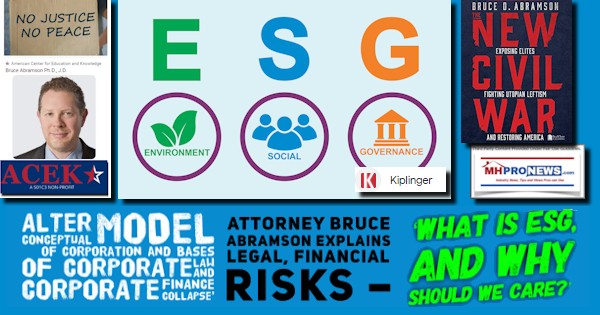
As readers of MHProNews who have attentively read remarks by Sun Communities (SUI) and other Manufactured Housing Institute (MHI) members who have declared their pursuit of so called ESG (Environmental, Social, and Governance) standards may recognize, ESG linked steps are becoming more pervasive. Or as attorney and Ph.D. Bruce Abramson, writing in Real Clear Wire said, “Consultancies, banks, investment funds, managers, governments, and international organizations trip over themselves touting their ESG scores and credentials.” Abramson followed that remark with a timely question: “So what is ESG, and why should we care?” He also noted (emphasis added) that “Stakeholder corporations are more complex entities than shareholder corporations—requiring corresponding complexity in their legal and financial treatment.” Part 1 of today’s report will explore Abramson’s legal and other expertise on the question ‘what is ESG, and why should we care.’ Part 2 of this report will provide additional information along with specific examples of manufactured home industry connected firms in what appears to be the increasingly ‘woke’ Manufactured Housing Institute (MHI) that are pushing and/or embracing ESG scores, standards, verbiage, and related posturing. Put differently, the evidence continues to mount that ESG has infected manufactured housing. On one level, it is hardly a surprise. But as several states and higher profile candidates are pushing back against ESG, it is becoming a battleground legal, political, and investment/financial issue. Abramson’s article, courtesy of the WND News Center to MHProNews, will help frame the facts, evidence, and concerns surrounding ESG. One of several timely questions for MHVille is this. How may these ESG tendencies play out with MHI’s Department of Energy (DOE) manufactured home energy standards lawsuit? Is a woke MHI only posturing, looking for a delay rather than an actual stop to the threats raised by those standards for smaller businesses and millions of potential consumers? Are they willing to allow the sharp decline in manufactured home production to occur during a widely acknowledge affordable housing crisis? These are just some of the several possible issues to consider for manufactured housing industry stockholders, employees, independent business owners, along with other industry and consumer stakeholders, public officials and attorneys, among others.
With that preface, here is Abramson’s article. Part II will explore other related information, including more from that same author and others, that in various ways underscore his points.
Part I
WND MONEY
Corporations embracing ESG must lose their legal protection
Agenda ‘threatens to undermine the stock market, large swathes of American law’
By WND News Services Published March 5, 2023 at 3:53pm [Editor’s note: This story originally was published by Real Clear Wire.]

Real Clear Wire
ESG, an acronym for Environmental, Social, and Governance, is everywhere. If you work for, advise, invest in, regulate, study, or otherwise care about one or more corporations, you’ve likely encountered the term. Consultancies, banks, investment funds, managers, governments, and international organizations trip over themselves touting their ESG scores and credentials.
So what is ESG, and why should we care?
Though the term calls for incorporating concern with global warming (“E”), systemic racism (“S”), and other “woke” priorities into corporate governance (“G”), specifics can be elusive. The basic effect, however, is clear. ESG’s redefinition of “the corporation” threatens to undermine the stock market, the global economy, and large swathes of American law.
Its radicalism is hardly coincidental. ESG is an outgrowth of “stakeholder capitalism,” a theory first forwarded decades ago as an alternative to “shareholder capitalism.” Its earliest advocates thought that corporations whose sole purpose is to serve their owners—or shareholders—are cold and uncaring. Shouldn’t corporations also care about their employees, customers, neighbors, and all others whose lives they touch?
Under stakeholder capitalism, those people would gain a say over corporate decision-making. Under ESG, if all human activity affects problems like climate change and systemic racism, then all corporate decisions should incorporate such concerns. Corporations operating under this stakeholder model are thus a different species from the familiar shareholder corporation.
But corporations don’t exist in nature, and they don’t evolve. They’re legal constructs, subject to certain assumptions and constraints. Their legal and financial treatment is designed to make sense given the consequent model of corporate behavior. Alter the conceptual model of the corporation, and the bases of both corporate law and corporate finance collapse.
Shareholder corporations answer to a single moral imperative: maximize shareholder value. Whether you like the implicit morality or not, the behavior of entities following a single rule is predictable. Every existing element of both corporate law and corporate finance assumes that corporations are predictable profit-maximizers.
Stakeholder corporations undermine that assumption. Though stakeholder corporations can return value to shareholders, any corporation claiming proudly to consider multiple potentially conflicting tradeoffs cannot be assumed to work toward maximizing shareholder value. Stakeholder corporations are more complex entities than shareholder corporations—requiring corresponding complexity in their legal and financial treatment.
The World Economic Forum’s Klaus Schwab, arguably the most influential and prominent advocate of the ESG movement, was an early champion of stakeholder capitalism. In his recent Great Reset and Great Narrative books, Schwab shows how the stakeholder model, filtered through ESG, will centralize decision-making authority among a small cadre of corporate leaders and government bureaucrats—who, unencumbered by annoying shareholders or voters, will be free to focus on the common good.
For those of us who wish to prevent ESG’s takeover of the corporate landscape, corporate law offers a promising avenue of counterattack. The predictability of shareholder corporations earned them a simplified legal treatment subject to many helpful presumptions. Proud of their “evolved” ethical codes, stakeholder corporations have announced that such presumptions are misplaced.
Fair enough. Let the law take them at their word. Litigation and legislation must sever the legal treatment of stakeholder corporations from that of shareholder corporations.
Perhaps the cleanest—and potentially the most consequential—place to start is the Business Judgment Rule. This legal presumption allows every corporate defendant to arrive in the courtroom asserting that its decisions—including those that prove disastrous for shareholders—were made in the service of maximizing shareholder value. Plaintiffs—whether employees, shareholders, or business partners—complaining about corporate actions that failed to deliver bear the burden of proving bad faith, rather than mere errors in judgment.
The Business Judgment Rule makes sense when applied to shareholder corporations—but not to stakeholder corporations. Any corporation with an ESG statement has explicitly proclaimed that it will subvert some shareholder interests in favor of pressing environmental or social concerns.
The campaign to restore shareholder capitalism would snowball from there. Stakeholder corporations shorn of such legal benefits would sue the lawyers and consultants who guided them away from the legally beneficial shareholder model towards ESG—assuming only that even the most woke American corporations still value their own corporate interests. The legal and consulting classes will get the message.
ESG will persist as long as corporate leaders view it as cheap virtue signaling, would-be overlords see it as a path to power, and lawyers and consultants can milk it for revenues. The best way to defeat ESG is to rely on the same self-interest driving its current embrace: if the costs of ESG become exorbitant and obvious, the entire edifice will fall.
Like all utopian schemes, ESG is an attack on global freedom and prosperity. If you’re really dedicated to improving the lives of all stakeholders, you should work for an end to ESG.
Bruce Abramson, PhD, JD, is the author of five books, most recently “The New Civil War: Exposing Elites, Fighting Utopian Leftism, and Restoring America” (RealClear Publishing, 2021). He is president of the strategic consultancy Informationism, Inc. and a director of the American Center for Education and Knowledge.
Part II Additional Information with More MHProNews Analysis and Commentary
As was noted in the preface, Sun Communities (SUI) is but one of a number of Manufactured Housing industry, and Manufactured Housing Institute (MHI) connected corporations that have publicly stated their pursuit of ESG standards. As will be revealed in a planned and upcoming report, UMH Properties (UMH) is another. But so too is corporate behemoth BlackRock. Agree with ESG and “woke” corporate behavior or not, what is occurring with BlackRock in numbers of right-leaning states is a wakeup call for anyone considering a pursuit of ESG standards. WND reports that at least two Democratic Senators, Jon Tester (MT-D) and Joe Manchin (WV-D), are standing with Republicans in Congress on ESG related concerns. More on that may be part of a different upcoming and related report.
Abramson said: “For those of us who wish to prevent ESG’s takeover of the corporate landscape, corporate law offers a promising avenue of counterattack. The predictability of shareholder corporations earned them a simplified legal treatment subject to many helpful presumptions.” As WND’s post of the Real Clear Wire article noted, Abramson is “a director of the American Center for Education and Knowledge [ACEK].”
From the ACKE website about us page: “The American nation was conceived as an idea. Its founders united more than thirteen colonies; they united the concepts of freedom and responsibility as the basis of governance.”
Says ACEK: “Our elite, feeling entitled to remain elite, move to lock their advantages in place while reducing the social and economic mobility of others.” Perhaps coincidentally, that’s a notion that MHProNews has explored through revealing remarks like the ones quoted below.
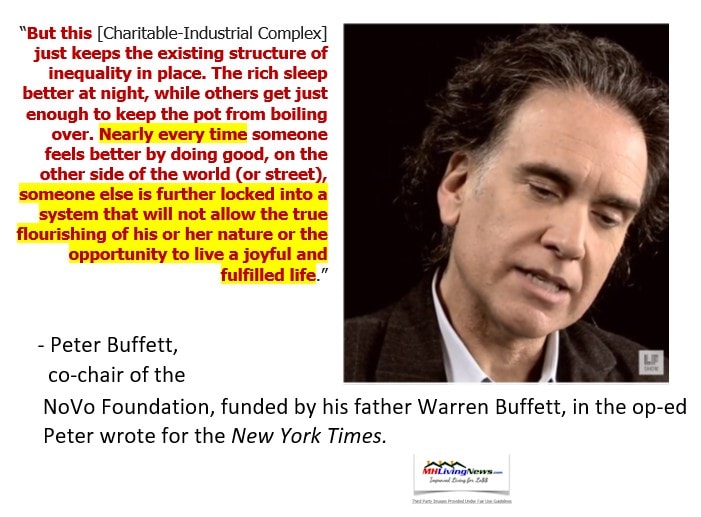
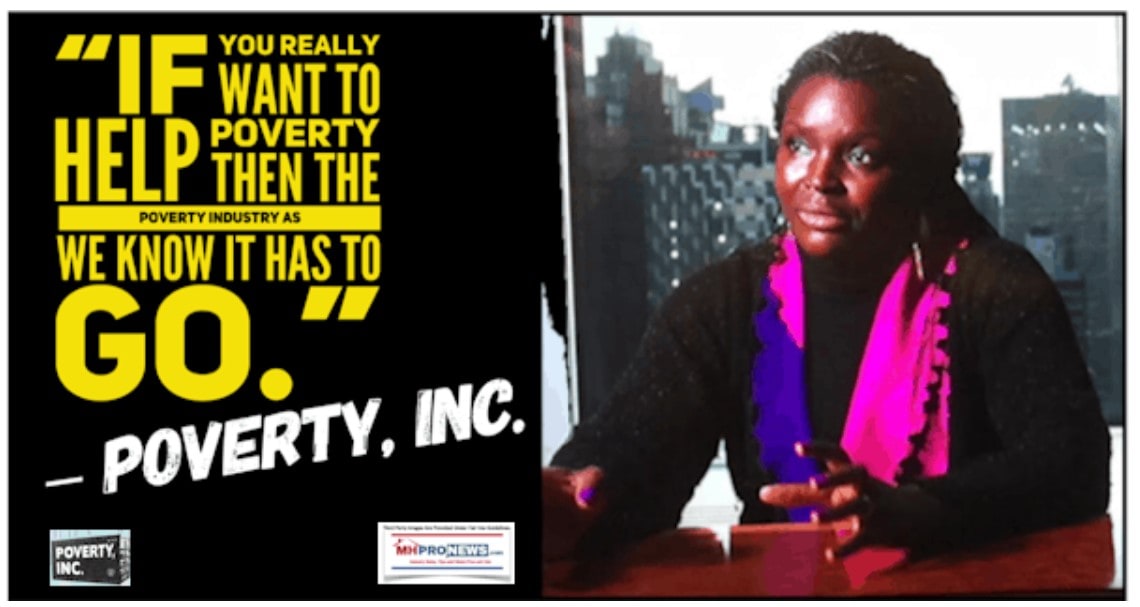
As MHProNews recently noted, the U.S.A. was founded as a Republic, not as a democracy. Yes, the American Republic has some democratic features to it, but the distinctions between a Republic and Democracy are important ones. As the Pledge of Allegiance mentions, “…and to the Republic for which it [the U.S.A. flag] stands…”
From ACEK:

Their progressivism seems to have gained the upper hand. We have allowed them to pervert our language, only to find ourselves tongue-tied in asserting our position. We have paid insufficient heed to education, to entertainment, and to the media—and thus lost control of our culture. If we cannot reverse those trends—soon—the American idea will pass into history.
The time has come to fight back. The time has come to return to our roots. The time has come to restore the American idea to the center of America’s consciousness.
The time has come to restore the American idea to all of its glory, to suffuse our politics and policies with it, to extoll the preeminence of the individual, the freedom of will, and the merits of assuming personal responsibility. The time has come to restore the American God, His natural law, and His code of ethics to their proper roles in everyday life.
The time has come to restore America.”
Their mission statement includes the following:

ACEK is a non-partisan think tank leading that fight. ACEK’s mission is to educate, inform, and mobilize public opinion through honest and open debate.”
There are any number of organizations, groups, and millions of individuals who conceptually hold views similar to, and are seemingly in broad alignment with, a rejection of the power of elites molding American society for their own benefit. Paraphrasing what the late Senator John Sherman said, the U.S.A. is not supposed to be a society with kings and nobility. Yet there is growing evidence that that is where our nation landed in the later part of the 20th and early part of the 21st centuries.
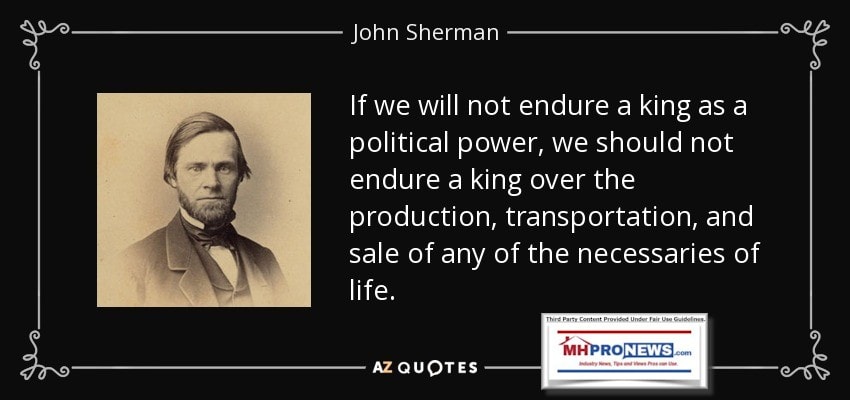
No Kings in America? – John Sherman ‘Speaks’ to Manufactured Housing
Those linked reports reveal that concerns about the growing power of the elites ‘ruling’ America through ‘divide and conquer’ tactics that include paltering, posturing, and ‘deception and misinformation tactics spans voices on either side of the left-right divide. While developing those connections requires efforts, the potential rewards in terms of fighting back against those who are apparently manipulating business, political, social and other trends for their own benefit ought to be apparent for those who reflect on the evidence in a dispassionate manner.
That noted, there is a balancing act to be played between justice, liberty and personal responsibility, says Abramson and ACEK. There is a need to broadly forge a new consensus that doesn’t allow the elites that seek to divide and thereby rule Americans to be successful at that effort.
ESG is just one of those ploys. As Abramson noted, ESG and ‘woke’ posturing are linked to the Great Reset and “woke” capitalism. As left-leaning Wikipedia said: “Woke capitalism is a term coined by columnist Ross Douthat in an article for The New York Times. By the mid-2010s, language associated with “wokeness” had entered the mainstream media and was being used for marketing.”
As a post on the Heritage website says, quoting a Fox Business analyst:
“Charles Payne: The largest businesses in this country, well, they decided to preempt the torch and pitchfork crowd, because they know that there will be an evolution of capitalism or a devolution backwards to something like corporatism. Corporatism, by the way, is a system that would have business, government, and unions all sharing in the decision making duties.”
Payne’s insight is on point with the cautionary reminder of what fascism actually is. A joining of corporate and governmental power is a fair paraphrase of what fascist socialist leader Benito Mussolini defined it as.
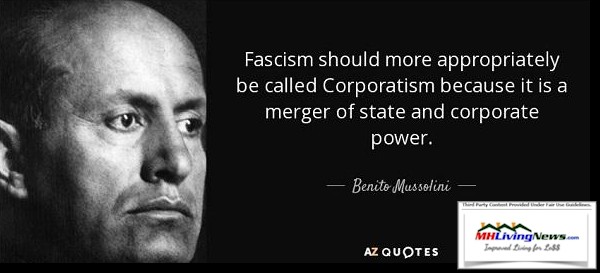
Using that definition, numbers of countries are moving towards, or already are ‘fascists’ countries. Communist China, for instance, uses elements of fascism by permitting corporations in a system that supposedly rejects capitalism. The so-called Chinese miracle is, when examined, an injection of capitalism into a communist system. They are de facto, if not explicitly, fascists.
Abramson and others are warning of the various threats to America society. Understanding how those threats operate is a useful predicate for action. To that end, per the ACEK site, a revival and embrace of notions of personal liberty, personal responsibility and a return to the religious roots of our American Republic. It was George Washington who said that only the moral inspirations of faith can safeguard our rights.
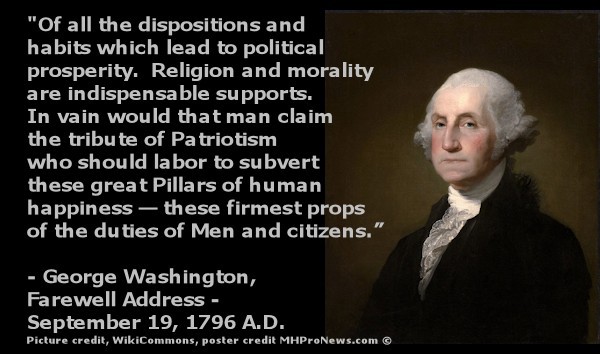
The Heritage nonprofit’s website quotes Andy Olivastro saying: “woke corporatism. What it is a top-down anti-democratic movement. And it’s on the part of some of the biggest and most important names in American business to change the way that business functions, to change the definition of capitalism itself, and to permanently change the relationship between the citizen and the state.”
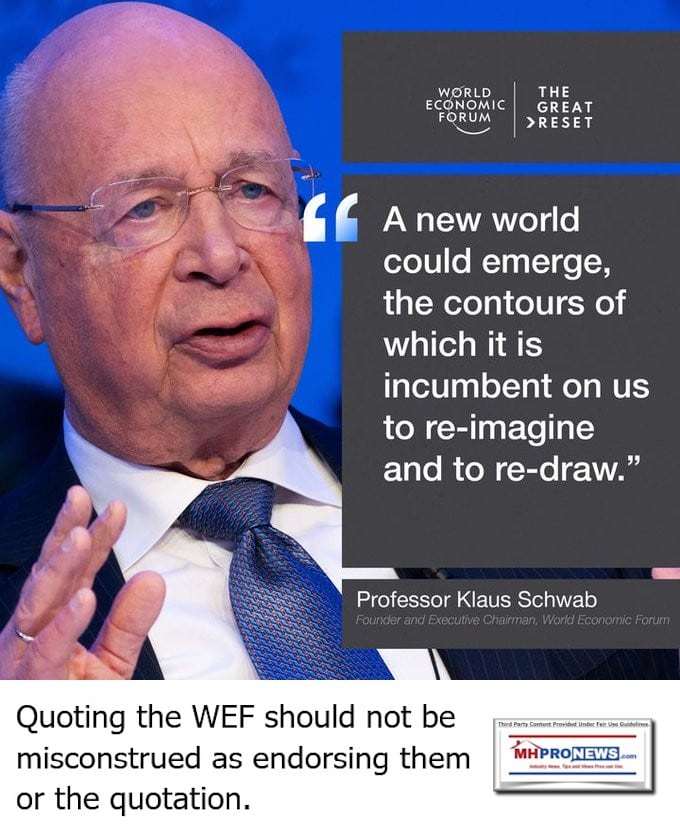
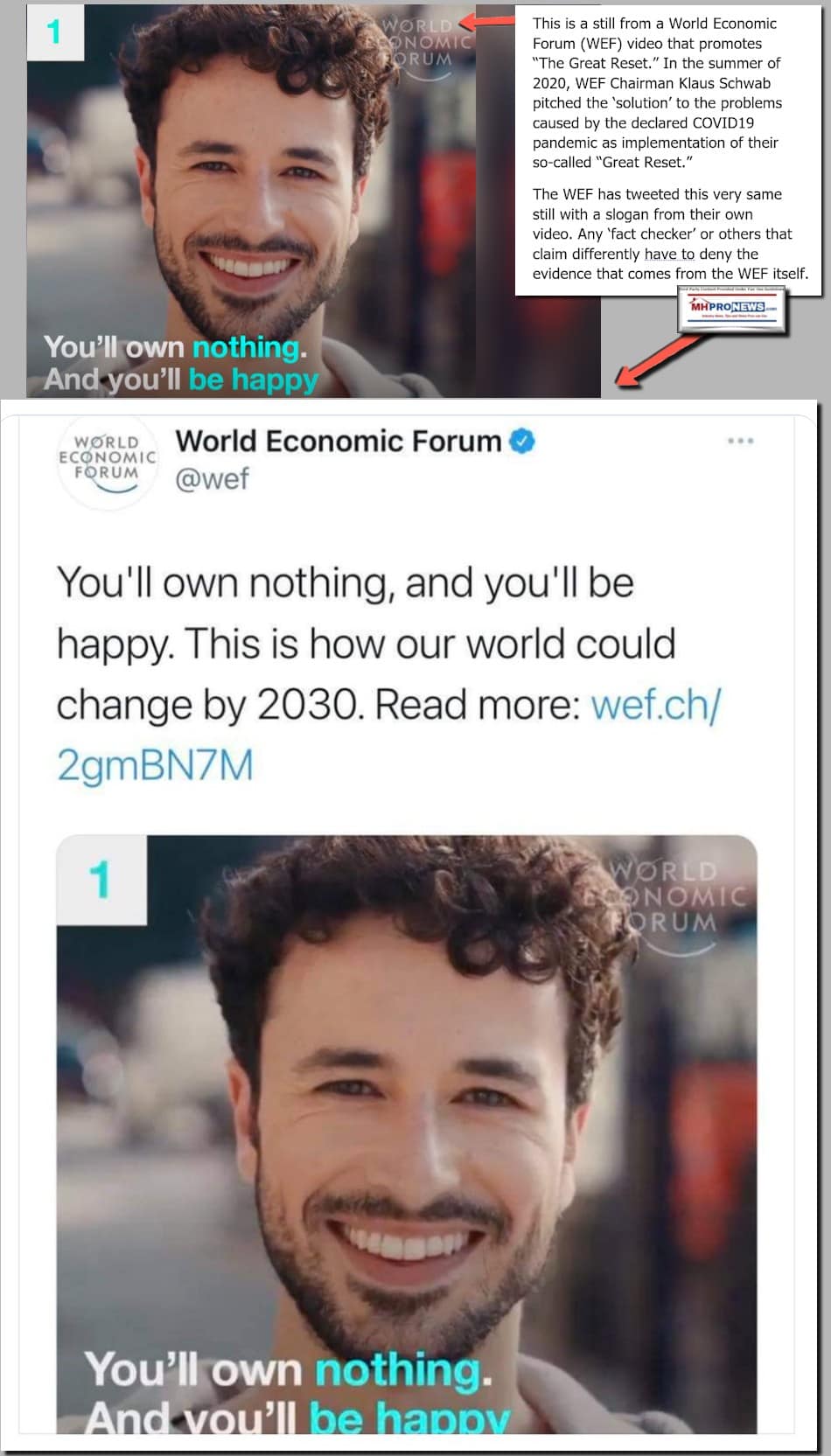
The threats to our society, to the notions of ‘God-given and constitutionally protected’ rights are many. ESG is just one of them. That it is infecting, or has been embraced, by corporations actively engaged in manufactured housing are good reasons to explore and understand these trends, beliefs, and what they imply for our nation.

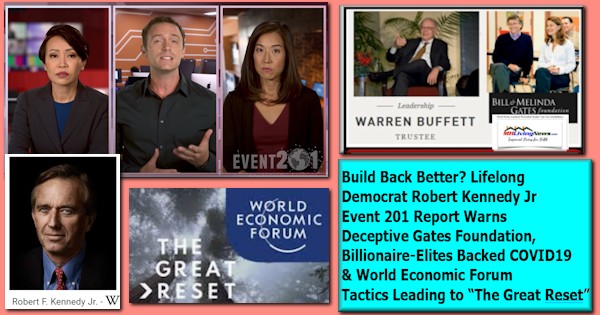
Entirely separate remarks from the right (above) and left (below) reveal opportunities for the majority of Americans to take a fresh look at the evidence and recognize the ‘divide and conquer’ threats that slip in under the guide of sometimes seemingly noble causes. Note that Robert F. Kennedy Jr., J.D., has teased a possible run for the Democratic nomination of president in 2024. If so, antitrust and voices opposing the Great Reset and faux, posturing tactics could witness similar foundational beliefs emerging from both major parties. That could be a hopeful development.
Back to the Heritage post, Olivastro: said about these trends, “Share owners are being robbed.” He added, “they’re using your money to advance their own initiatives.”
That hits near the mark that MHProNews has raised concerns about for years. To apply that specifically to MHVille, by co-opting MHI, the RV MH Hall of Fame, Next Step, and numbers of nonprofit groups (among other organizations), manufactured housing industry independents may literally be feeding the hands that are biting them.
Something similar can be said about the stockholders and employees of woke or ESG embracing brands. They are being unjustly deprived of their authentic opportunities – and a higher income/rates of return. See the linked and related reports to learn more. Because these are among the reasons, argued attorney Abramson, for public officials and the public at large to care about ESG, its risks, harms and implications. Someone might put it simply, ‘when it comes to ESG, just say no.’ ##
PS: BRUCE ABRAMSON
Bruce Abramson has over thirty years of experience working as a technologist, economist, attorney, and policy analyst. Dr. Abramson holds a Ph.D. in Computer Science from Columbia and a J.D. from Georgetown. He has contributed to the scholarly literature on computing, business, economics, law, and foreign policy, and written extensively about American politics and policy.
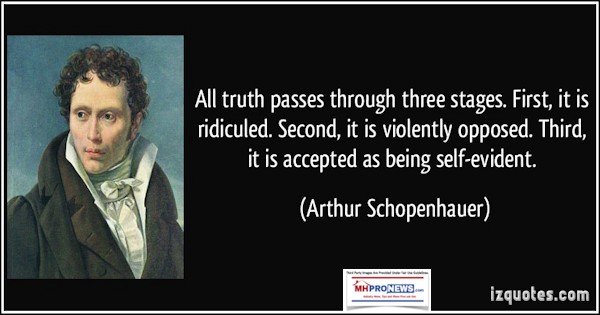
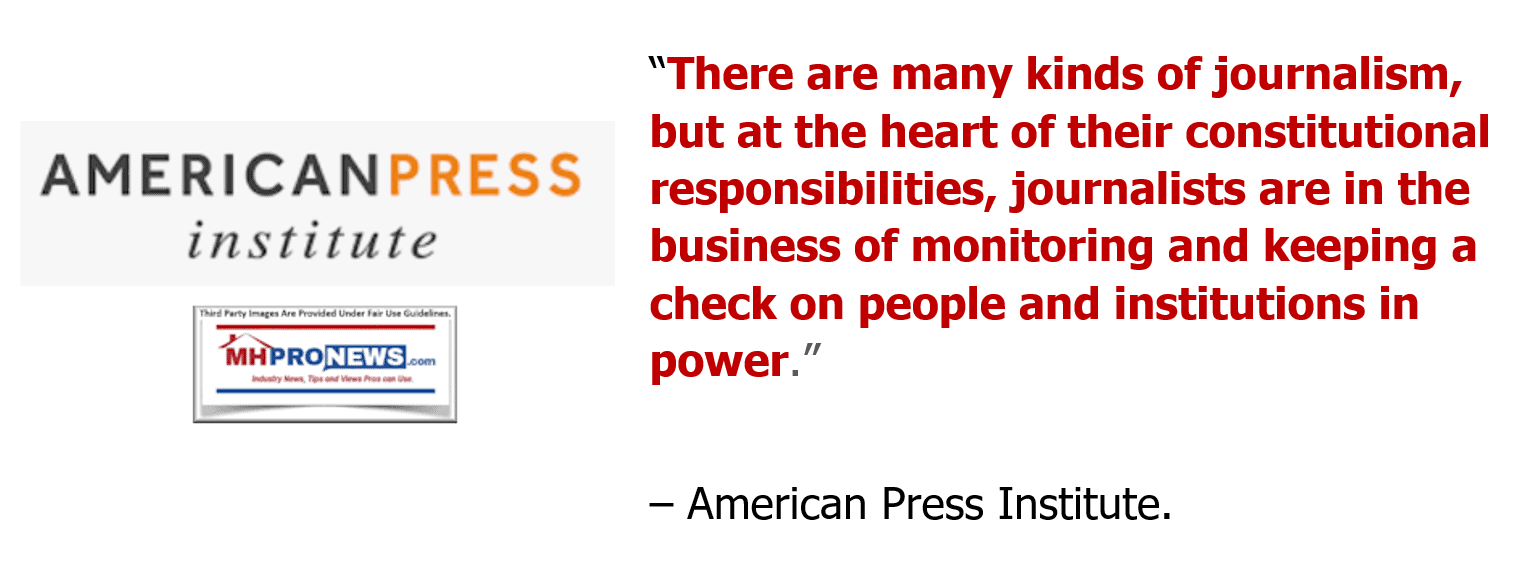


Again, our thanks to free email subscribers and all readers like you, as well as our tipsters/sources, sponsors and God for making and keeping us the runaway number one source for authentic “News through the lens of manufactured homes and factory-built housing” © where “We Provide, You Decide.” © ## (Affordable housing, manufactured homes, reports, fact-checks, analysis, and commentary. Third-party images or content are provided under fair use guidelines for media.) (See Related Reports, further below. Text/image boxes often are hot-linked to other reports that can be access by clicking on them.)

By L.A. “Tony” Kovach – for MHProNews.com.
Tony earned a journalism scholarship and earned numerous awards in history and in manufactured housing.
For example, he earned the prestigious Lottinville Award in history from the University of Oklahoma, where he studied history and business management. He’s a managing member and co-founder of LifeStyle Factory Homes, LLC, the parent company to MHProNews, and MHLivingNews.com.
This article reflects the LLC’s and/or the writer’s position, and may or may not reflect the views of sponsors or supporters.
Connect on LinkedIn: http://www.linkedin.com/in/latonykovach
Related References:
The text/image boxes below are linked to other reports, which can be accessed by clicking on them.’

